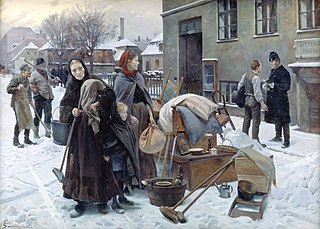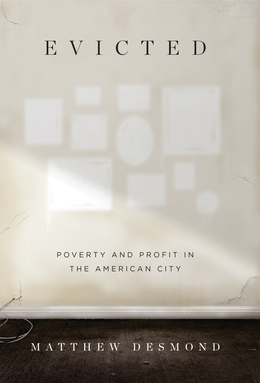Related Research Articles
A school voucher, also called an education voucher in a voucher system, is a certificate of government funding for students at schools chosen by themselves or their parents. Funding is usually for a particular year, term, or semester. In some countries, states, or local jurisdictions, the voucher can be used to cover or reimburse home schooling expenses. In some countries, vouchers only exist for tuition at private schools.
School choice is a term for education options that allow students and families to select alternatives to public schools. It is the subject of fierce debate in various state legislatures across the United States.

The United States Department of Housing and Urban Development (HUD) is one of the executive departments of the U.S. federal government. It administers federal housing and urban development laws. It is headed by the Secretary of Housing and Urban Development, who reports directly to the President of the United States and is a member of the president's Cabinet.

Eviction is the removal of a tenant from rental property by the landlord. In some jurisdictions it may also involve the removal of persons from premises that were foreclosed by a mortgagee.

In the United States, the number of homeless people varies from different federal government accounts. In 2014, approximately 1.5 million sheltered homeless people were counted. In 2018, the Department of Housing and Urban Development estimated roughly 553,000 homeless people in the United States on a given night, or 0.17 percent of the population. Approximately 65 percent of people were sheltered in provided housing while 35 percent were unsheltered. Annual federal HUD reports contradict private state and local reports where homelessness is shown to have increased each year since 2014 across several major American cities, with 40 percent increases noted in 2017 and in 2019.
Section 8 of the Housing Act of 1937, often called Section 8, as repeatedly amended, authorizes the payment of rental housing assistance to private landlords on behalf of low-income households in the United States. Fort Lauderdale, Florida Housing Authority Director William H. Lindsey, upon the advice of Housing Authority attorney J. Richard Smith, initially developed 11(b) financing in the early 1970s to accommodate a local savings and loan interested in assisting with urban renewal projects Lindsey eventually brought to fruition. This was the initial impetus for the subsequent development of the now well known Section 8 Program. 68% of total rental assistance in the United States goes to seniors, children, and those with disabilities. The U.S. Department of Housing and Urban Development manages Section 8 programs.

Slum clearance, slum eviction or slum removal is an urban renewal strategy used to transform low income settlements with poor reputation into another type of development or housing. This has long been a strategy for redeveloping urban communities; for example slum clearance plans were required in the United Kingdom in the Housing Act 1930, while the Housing Act of 1937 encouraged similar clearance strategies in the United States. Frequently, but not always, these programs were paired with public housing or other assistance programs for the displaced communities.
Subsidized housing is government sponsored economic assistance aimed towards alleviating housing costs and expenses for impoverished people with low to moderate incomes. In the United States, subsidized housing is often called "affordable housing". Forms of subsidies include direct housing subsidies, non-profit housing, public housing, rent supplements/vouchers, and some forms of co-operative and private sector housing. According to some sources, increasing access to housing may contribute to lower poverty rates.
HOPE VI is a program of the United States Department of Housing and Urban Development. It is intended to revitalize the worst public housing projects in the United States into mixed-income developments. Its philosophy is largely based on New Urbanism and the concept of defensible space.

Affordable housing is housing which is deemed affordable to those with a household income at or below the median as rated by the national government or a local government by a recognized housing affordability index. Most of the literature on affordable housing refers to mortgages and a number of forms that exist along a continuum – from emergency homeless shelters, to transitional housing, to non-market rental, to formal and informal rental, indigenous housing, and ending with affordable home ownership.
The Atlanta Housing Authority (AHA) is an agency that provides affordable housing for low-income families in Atlanta. Today, the AHA is the largest housing agency in Georgia and one of the largest in the United States, serving approximately 50,000 people.

In the United States, subsidized housing is administered by federal, state and local agencies to provide subsidized rental assistance for low-income households. Public housing is priced much below the market rate, allowing people to live in more convenient locations rather than move away from the city in search of lower rents. In most federally-funded rental assistance programs, the tenants' monthly rent is set at 30% of their household income. Now increasingly provided in a variety of settings and formats, originally public housing in the U.S. consisted primarily of one or more concentrated blocks of low-rise and/or high-rise apartment buildings. These complexes are operated by state and local housing authorities which are authorized and funded by the United States Department of Housing and Urban Development (HUD). In 2020, there were 1 million public housing units.

Social programs in the United States are programs designed to ensure that the basic needs of the American population are met. Federal and state social programs include cash assistance, health insurance, food assistance, housing subsidies, energy and utilities subsidies, and education and childcare assistance. Similar benefits are sometimes provided by the private sector either through policy mandates or on a voluntary basis. Employer-sponsored health insurance is an example of this.
Squatting in the United States is the unauthorized use of real estate. Historically, squatting occurred during the California Gold Rush and when colonial European settlers established land rights. There was squatting during the Great Depression in Hoovervilles and also during World War II. Shanty towns returned to the US after the Great Recession (2007–2009) and in the 2010s, there were increasing numbers of people occupying foreclosed homes using fraudulent documents. In some cases, a squatter may be able to obtain ownership of property through adverse possession.
Discrimination in awarding Section 8 housing describes cases of discrimination in the housing market of the United States of America whereby landlords refuse to rent to tenants using housing vouchers. In the United States, "Section 8" is a portion of the Housing Act of 1937 that provides financial assistance for housing costs of several million low-income Americans.

Evicted: Poverty and Profit in the American City is a 2016 non-fiction book by American author Matthew Desmond. Set in the poorest areas of Milwaukee, Wisconsin, the book follows eight families struggling to pay rent to their landlords during the financial crisis of 2007–2008. Through a year of ethnographic fieldwork, Desmond's goal in the book is to highlight the issues of extreme poverty, affordable housing, and economic exploitation in the United States.

Kelvin A. Jeremiah is President and CEO of the Philadelphia Housing Authority (PHA). He oversees the day-to-day operations of the 4th largest housing authority in the country. His approach to housing communities expands beyond affordable housing. Jeremiah has an interest in creating communities that provide access to good education and are crime free.

Housing insecurity is the lack of security in an individual shelter that is the result of high housing costs relative to income, poor housing quality, unstable neighborhoods, overcrowding, and, but may not include, homelessness.

Eviction in the United States refers to the pattern of tenant removal by landlords in the United States. In an eviction process, landlords forcibly remove tenants from their place of residence and reclaim the property. Landlords may decide to evict tenants who have failed to pay rent, violated lease terms, or possess an expired lease. Landlords may also choose not to renew a tenant's lease, however, this does not constitute an eviction. In the United States, eviction procedures, landlord rights, and tenant protections vary by state and locality. Historically, the United States has seen changes in domestic eviction rates during periods of major socio-political and economic turmoil—including the Great Depression, the 2008 Recession, and the Covid-19 pandemic. High eviction rates are driven by affordable housing shortages and rising housing costs. Across the United States, low-income and disadvantaged neighborhoods have disproportionately higher eviction rates. Certain demographics—including low income renters, Black and Hispanic renters, women, and people with children—are also at a greater risk of eviction. Additionally, eviction filings remain on renters' public records. This can make it more difficult for renters to access future housing, since most landlords will not rent to a tenant with a history of eviction. Eviction and housing instability are also linked to many negative health and life outcomes, including homelessness, poverty, and poor mental and physical health.

Cancel rent is a slogan and tenant rights movement in the United States, which advocates for the cancellation of rental payments and suspension of mortgage payments during the coronavirus pandemic. Activists and organizations have also presented other demands, which include the cancellation of housing-related expenses, cancellation of late fees for housing payments, the establishment of a landlord hardship fund, an increase in emergency housing, and an eviction moratorium. The movement was triggered by the economic impact of the pandemic, in which mass business closures and employee layoffs resulted in financial insecurity for many Americans. Tenants faced a range of issues, including the inability to pay rent, harassment or intimidation from landlords, and potential eviction. This situation put tenants at risk of damaged credit ratings, food insecurity, and homelessness. Consequently, activists, tenants rights organizations, and some politicians have called for the cancellation of rent.
References
- ↑ Blumgart, Jake (July 2016). "It's time for universal housing vouchers". Slate.com. Retrieved July 2, 2016.
- ↑ Caves, R. W. (2004). Encyclopedia of the City. Routledge. p. 360.
- ↑ "A real solution to homelessness: Universal housing". Desertsun.com. Retrieved July 2, 2016.
- ↑ Desmond, Matthew (2016). Evicted. PenguinRandomHouse.